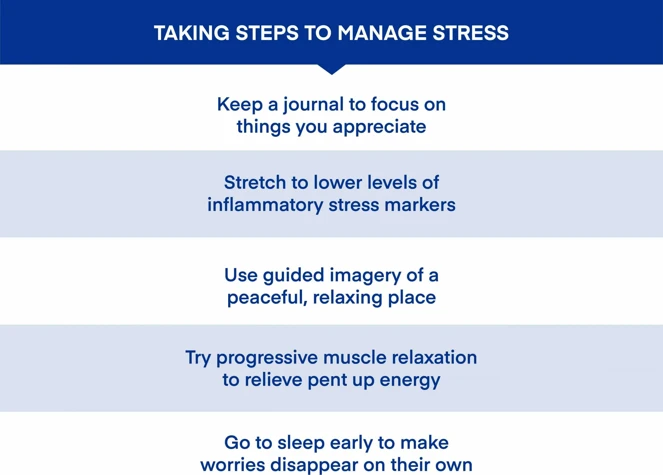Are you tired of tossing and turning night after night, unable to get a good night’s sleep? If so, you’re not alone. Insomnia affects millions of people around the world, leaving them feeling exhausted and irritable during the day. But fear not, because in this comprehensive guide, we will explore a variety of natural remedies that can help you overcome your insomnia and enjoy better sleep. From understanding the causes of insomnia to implementing healthy lifestyle habits, incorporating diet and nutrition, engaging in exercise and physical activity, practicing mind-body techniques, and exploring alternative therapies and technology, we will cover it all. So, get ready to bid farewell to sleepless nights and say hello to restful and rejuvenating slumber.
Understanding Insomnia
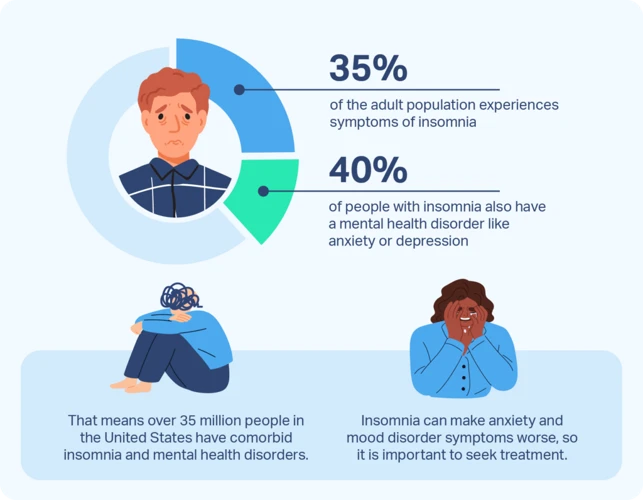
To effectively address insomnia, it’s crucial to have a clear understanding of what it entails. Insomnia is a sleep disorder characterized by persistent difficulty falling asleep or staying asleep, despite having adequate opportunity for sleep. It can manifest in various forms, including difficulty initiating sleep, waking up frequently during the night, waking up early in the morning, or experiencing non-restorative sleep. Insomnia can be acute, lasting for a short period, or chronic, lasting for three nights a week for at least three months. It affects individuals of all ages and can have a significant impact on overall well-being and quality of life. While occasional sleepless nights are common, chronic insomnia requires attention and intervention to avoid detrimental effects on physical and mental health. To gain a more comprehensive understanding of insomnia, you can explore its causes and the ways it can impact mental health and contribute to stress.
Causes of Insomnia
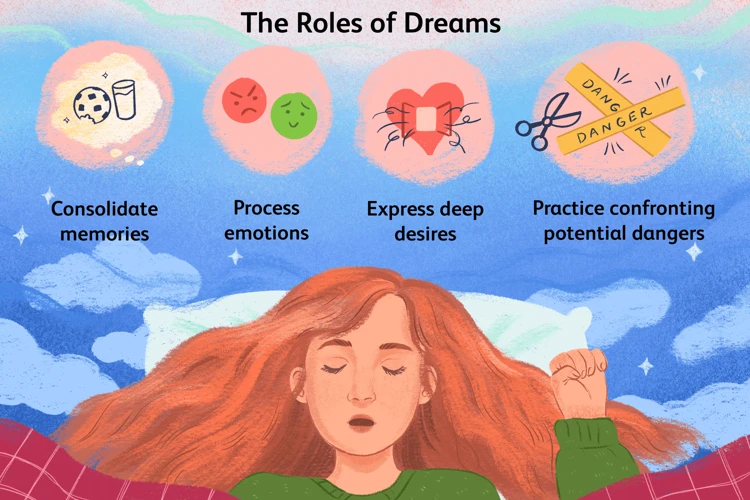
Insomnia can have various causes, both external and internal, that contribute to the disruption of sleep. External factors that can disrupt sleep include noise, extreme temperatures, uncomfortable bedding, and disruptions to the sleep environment. Additionally, certain lifestyle choices such as irregular sleep schedules, excessive caffeine intake, and excessive alcohol or nicotine consumption can also contribute to insomnia. On the other hand, internal factors that affect sleep quality include stress, anxiety, depression, chronic pain, and certain medical conditions. Understanding the causes of insomnia is essential in effectively addressing and managing it. For a deeper understanding of the causes of insomnia, you can explore the article on [Understanding Causes of Insomnia](internal link). It’s important to address the underlying causes to promote healthier sleep patterns and overall well-being.
External Factors that Disrupt Sleep
External factors play a significant role in disrupting sleep and exacerbating insomnia. These factors can include environmental conditions, lifestyle choices, and daily habits. One such factor is excessive noise, which can disturb sleep and prevent individuals from entering or maintaining deep sleep stages. Intense lighting, such as bright streetlights or electronic devices emitting blue light, can also interfere with the body’s natural sleep-wake cycle. Additionally, an uncomfortable sleep environment, with factors like improper mattress support or extreme temperatures, can make it difficult to fall asleep and stay asleep throughout the night. Irregular sleep schedules, including frequent changes in bedtime and wake-up times, can disrupt the body’s circadian rhythm, making it challenging to establish a consistent sleep routine. To better understand how these external factors can contribute to insomnia, it is important to explore the causes of insomnia and the impact it can have on mental health.
Internal Factors that Affect Sleep Quality
When it comes to understanding the factors that affect sleep quality, it’s important to recognize the internal aspects that can contribute to insomnia. These internal factors encompass a range of physiological and psychological elements that can disrupt the sleep-wake cycle. One key internal factor is stress and anxiety, which can cause racing thoughts and a heightened state of arousal that makes it difficult to relax and fall asleep. Additionally, certain medical conditions such as chronic pain, respiratory disorders, and hormonal imbalances can negatively impact sleep. Mental health disorders like depression and anxiety are also known to interfere with sleep patterns and overall sleep quality. Lifestyle habits such as irregular sleep schedules, excessive consumption of caffeine or alcohol, and lack of physical activity can contribute to internal imbalances that disrupt sleep. Identifying and addressing these internal factors is integral in effectively managing insomnia. To gain insight into the external factors that can disrupt sleep, you can read more about them and their impact on insomnia.
The Importance of Natural Remedies
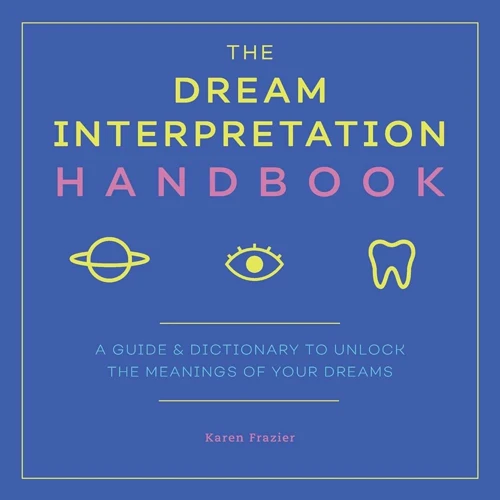
When it comes to addressing insomnia, natural remedies play a crucial role in promoting long-term sleep health. Unlike pharmaceutical medications, natural remedies offer a holistic approach to sleep improvement without the risk of dependency or unwanted side effects. Natural remedies encompass a wide range of techniques and practices that focus on improving sleep quality and restoring the body’s natural sleep-wake cycle. They often target the underlying causes of insomnia, such as stress, anxiety, and lifestyle factors. These remedies include adopting healthy lifestyle habits, incorporating diet and nutrition changes, engaging in exercise and physical activity, practicing relaxation techniques, exploring alternative therapies, and utilizing technology and gadgets that aid sleep. By embracing natural remedies, individuals can effectively manage and overcome insomnia while promoting overall well-being. To fully understand the significance of natural remedies for insomnia, it’s essential to explore their benefits and how they differ from conventional treatment options. For further insight, you can also delve into the impact of insomnia on mental health and the relationship between insomnia and stress.
Healthy Lifestyle Habits for Better Sleep

Implementing healthy lifestyle habits is essential for achieving better sleep and managing insomnia. One crucial habit is establishing a consistent sleep schedule. Going to bed and waking up at the same time every day, even on weekends, helps regulate the body’s internal clock and improves sleep quality. Maintaining a sleep-friendly environment is also important. This includes creating a dark, quiet, and comfortable bedroom that promotes relaxation. Managing stress and anxiety through techniques like deep breathing, meditation, or therapy can greatly benefit sleep. Additionally, it’s crucial to limit stimulants like caffeine and promote relaxation through activities such as reading, taking a warm bath, or practicing gentle stretching before bed. These lifestyle habits, when combined with a comprehensive understanding of the causes of insomnia and its impact on mental health and stress, contribute to creating a conducive environment for restful nights.
Establishing a Consistent Sleep Schedule
Establishing a consistent sleep schedule is an essential habit for promoting better sleep and combating insomnia. When we follow a regular sleep routine, our bodies become accustomed to a specific sleep-wake cycle, making it easier to fall asleep and wake up at the desired times. To establish a consistent sleep schedule, you can start by going to bed and waking up at the same time every day, even on weekends. This helps regulate the body’s internal clock, known as the circadian rhythm, and promotes a sense of predictability for your body and mind. Additionally, avoiding daytime napping or limiting it to short power naps can prevent disruption to the sleep schedule. It’s also important to create a wind-down routine before bed, which might include activities like reading, gentle stretching, or practicing relaxation techniques. By establishing a consistent sleep schedule, you can promote better sleep quality and make significant progress in managing insomnia. To understand more about how maintaining a regular sleep schedule contributes to better sleep and overall well-being, you can explore the link between understanding the causes of insomnia and the ways it impacts mental health.
Maintaining a Sleep-Friendly Environment
Creating a sleep-friendly environment is essential for promoting optimal sleep quality. Here are some key factors to consider:
1. Comfortable Bed: Ensure that your mattress and pillows provide adequate support and comfort. A worn-out mattress or uncomfortable pillows can contribute to discomfort and disrupt sleep.
2. Optimal Temperature: Keep your bedroom at a cool, comfortable temperature. Research suggests that a slightly cooler room, around 60-67 degrees Fahrenheit (15-19 degrees Celsius), promotes better sleep.
3. Darkness: Minimize exposure to light in your bedroom. Invest in blackout curtains or use an eye mask to block out any external light sources that can interfere with your sleep.
4. Quiet Environment: Reduce noise disturbances by using earplugs, a white noise machine, or soothing background music. Alternatively, you can try utilizing a fan to create a gentle, consistent sound.
5. Declutter: Keep your bedroom tidy and organized to create a sense of calm and relaxation. A clutter-free environment can help reduce stress and promote a peaceful atmosphere conducive to sleep.
6. Limit Electronic Devices: Avoid using electronic devices, such as smartphones, tablets, or laptops, before bedtime. The blue light emitted by these devices can interfere with your sleep-wake cycle. Instead, engage in relaxing activities like reading a book or listening to calming music.
7. Sleep-Specific Space: Reserve your bedroom primarily for sleep and intimacy. By associating your bed and bedroom with restfulness, you can train your brain to recognize it as a sleep-promoting environment.
Creating a sleep-friendly environment sets the stage for a restful night’s sleep. It helps signal to your body that it’s time to relax and unwind. For more information on the impact of insomnia on mental health or its connection to stress, you can explore relevant resources.
Managing Stress and Anxiety
Managing stress and anxiety is crucial for improving sleep quality and combating insomnia. Stress and anxiety can often be contributing factors to disrupted sleep patterns and difficulty falling asleep. Here are some strategies to help manage stress and anxiety:
1. Relaxation Techniques: Engage in relaxation exercises such as deep breathing, progressive muscle relaxation, or guided imagery. These techniques can help calm the mind and relax the body, making it easier to transition into a restful state.
2. Exercise: Regular physical activity has been shown to reduce stress and anxiety levels. Incorporate moderate-intensity exercises like brisk walking, yoga, or cycling into your daily routine. Exercising earlier in the day rather than close to bedtime can help promote better sleep.
3. Stress Management: Identify the sources of stress in your life and develop healthy coping mechanisms. This might involve setting boundaries, practicing time management techniques, or seeking support from loved ones or a therapist.
4. Mindfulness and Meditation: Cultivate mindfulness by practicing meditation or mindful awareness techniques. These practices can help reduce anxiety and promote relaxation, creating a conducive environment for sleep.
5. Seeking Professional Help: If stress and anxiety are significantly impacting your ability to sleep and function, it may be beneficial to seek professional help. Consider consulting with a therapist or counselor who specializes in stress management and anxiety reduction.
By addressing and managing stress and anxiety, you can help create a more peaceful and calm sleep environment, allowing for a more restful night’s sleep. For more information on the interplay between insomnia, stress, and mental health, you can explore the impact of insomnia on mental health.
Limiting Stimulants and Promoting Relaxation
When it comes to improving sleep quality and combating insomnia, it’s essential to limit stimulants and prioritize relaxation. Stimulants such as caffeine and nicotine can interfere with sleep by keeping the brain alert and disrupting the natural sleep-wake cycle. Consider reducing or eliminating consumption of these substances, especially in the afternoon and evening. Additionally, limit the intake of sugary and high-fat foods close to bedtime, as they can cause indigestion and discomfort, making it harder to fall asleep. On the other hand, embracing relaxation techniques can promote a sense of calmness and prepare the body for sleep. Engaging in activities such as reading a book, taking a warm bath, or practicing deep breathing exercises can help relax the mind and body. Creating a soothing bedtime routine, which may include gentle stretching exercises or listening to soft music, can signal to the body that it’s time to unwind and prepare for sleep. By reducing stimulants and incorporating relaxation techniques, individuals can create an environment conducive to restful sleep. To understand more about the impact of insomnia on mental health and its relationship with stress, you can explore relevant resources on those subjects.
Diet and Nutrition for Restful Nights

Proper diet and nutrition play a crucial role in promoting restful nights and combating insomnia. It’s essential to maintain a balanced diet that includes foods rich in sleep-supporting nutrients. Certain foods and beverages can aid in relaxation and facilitate a good night’s sleep. For example, foods like kiwi, almonds, and bananas contain natural compounds such as melatonin and magnesium, which can help regulate sleep-wake cycles and promote relaxation. Herbal teas like chamomile and valerian root can also have calming effects on the body. Additionally, it’s important to limit the consumption of stimulants such as caffeine and alcohol, as they can disrupt sleep patterns. Consuming a light, easily digestible meal before bed and avoiding heavy, spicy, or greasy foods can also contribute to better sleep. By incorporating these dietary strategies and exploring the potential benefits of herbs and supplements, you can create a sleep-friendly diet that supports restful nights. To learn more about the impact of insomnia on mental health and its relationship with stress, you can click [here](/explore-insomnia-stress/).
Foods and Beverages that Support Sleep
When it comes to promoting better sleep, making smart choices about the foods and beverages we consume can have a positive impact. Certain foods contain nutrients and compounds that can help regulate sleep cycles and promote relaxation. For instance, including foods rich in tryptophan, such as turkey, chicken, nuts, and seeds, can aid in the production of serotonin and melatonin, hormones that regulate sleep. Magnesium-rich foods like leafy greens, legumes, and whole grains can also have a calming effect on the nervous system. Additionally, tart cherries and kiwi are packed with antioxidants and natural melatonin, making them excellent fruit choices for bedtime snacks. It’s important to note that consuming heavy, fatty, or spicy meals close to bedtime may disrupt sleep, so it’s advisable to opt for light, easily digestible options in the evening. A balanced diet that includes these sleep-friendly foods can contribute to a more restful night. For more information on the impact of insomnia on mental health, you can explore the potential link between the two and understand the importance of managing insomnia for overall well-being.
Herbs and Supplements for Insomnia
When it comes to addressing insomnia, herbs and supplements can be a valuable addition to your sleep regimen. These natural remedies offer a gentle and holistic approach to promoting better sleep and relaxation. One popular herb for insomnia is Valerian root. Valerian root has been used for centuries to improve sleep quality and reduce the time it takes to fall asleep. Another herb, Chamomile, is well-known for its calming properties and can help alleviate anxiety and promote sleep. The supplement Melatonin, which is a hormone naturally produced by the body to regulate sleep-wake cycles, can also be beneficial for individuals with insomnia. Lavender, whether in the form of essential oil or tea, has soothing properties that can promote relaxation and improve sleep quality. It’s important to note that while these herbs and supplements have shown promise in improving sleep, it’s always advisable to consult with a healthcare professional before incorporating them into your routine, especially if you have any underlying health conditions or if you are taking other medications. Additionally, it’s essential to maintain a healthy lifestyle and address any underlying causes of insomnia for optimal results. To learn more about the impact of insomnia on mental health, you can explore our informative article here.
Exercise and Physical Activity
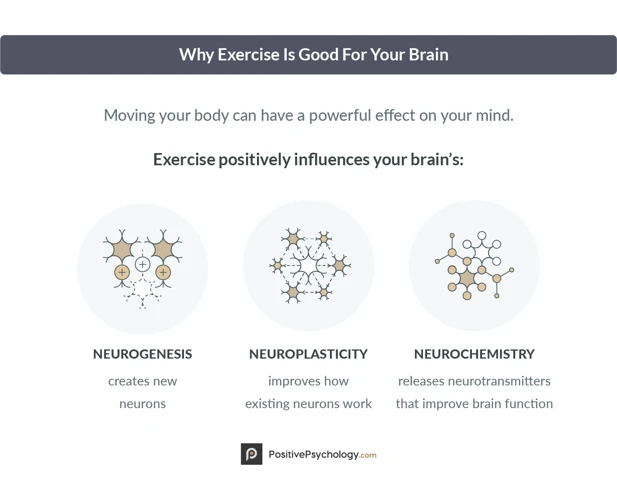
Engaging in regular exercise and physical activity can play a significant role in improving sleep quality and combating insomnia. Exercise has been shown to promote better sleep by helping to regulate the body’s internal clock, known as the circadian rhythm, which governs sleep-wake cycles. It can also reduce the time it takes to fall asleep and decrease the frequency of nighttime awakenings. Exercise can help alleviate stress and anxiety, both of which can contribute to sleep problems. However, it’s important to note that the timing and intensity of exercise can impact sleep differently for individuals. It is recommended to engage in moderate-intensity aerobic exercises, such as walking, swimming, or cycling, at least 150 minutes per week. Strength training exercises can also be beneficial. Avoid engaging in vigorous exercise too close to bedtime, as it may have a stimulating effect and make it more difficult to fall asleep. By incorporating exercise into your daily routine, you can enjoy the numerous benefits it offers for both physical and mental well-being, while improving your chances of getting a restful night’s sleep.
Impact of Exercise on Sleep
The impact of exercise on sleep is remarkable. Engaging in regular physical activity has been shown to promote better sleep quality and duration. When you exercise, your body releases endorphins, which are known as “feel-good” hormones. These endorphins help to reduce stress and anxiety, allowing you to relax more easily and fall asleep faster. Regular exercise also tires your body out, making it easier for you to drift into a deep and restful sleep. Additionally, exercise regulates your body’s internal clock, also known as the circadian rhythm, which helps to establish a consistent sleep-wake cycle. It’s important to note that the timing of exercise can have different effects on sleep. Some studies suggest that exercising in the morning or early afternoon can be more beneficial for sleep, as exercising too close to bedtime can increase arousal and make it more difficult to fall asleep. It’s recommended to engage in at least 30 minutes of moderate-intensity exercise most days of the week to experience the positive impact on sleep. So, whether it’s a brisk walk, a yoga session, or a jog in the park, incorporating regular exercise into your routine can significantly improve your sleep quality.
Recommended Types and Timing of Exercise
When it comes to improving sleep, incorporating regular exercise into your routine can be highly beneficial. However, not all types of exercise are created equal in promoting better sleep. Some forms of exercise can be energizing and may actually interfere with sleep if done too close to bedtime. To optimize the sleep-enhancing benefits of exercise, it’s important to consider the recommended types and timing of exercise.
1. Aerobic Exercise: Engaging in aerobic activities such as brisk walking, jogging, cycling, or swimming can help regulate your sleep-wake cycle and improve sleep quality. Aim for at least 150 minutes of moderate-intensity aerobic exercise per week.
2. Strength Training: Including strength training exercises like weightlifting or bodyweight exercises in your routine can also have a positive impact on sleep. Strength training helps build muscle, which can contribute to better sleep quality.
3. Yoga and Stretching: Practicing yoga or engaging in stretching exercises before bedtime can help relax the body and promote a sense of calm. Gentle stretching or restorative yoga poses can be particularly beneficial for preparing the body for sleep.
As for the timing of exercise, it’s generally recommended to avoid vigorous workouts close to bedtime, as the increase in body temperature and heart rate can make it difficult to fall asleep. Ideally, complete your exercise session at least three hours before bedtime to give your body enough time to cool down and relax. However, everyone’s sleep patterns and responses to exercise can vary, so it’s important to listen to your body and adjust your exercise routine accordingly. Remember to consult with a healthcare professional before starting a new exercise program, especially if you have any underlying health conditions.
Mind-Body Techniques for Sleep Improvement
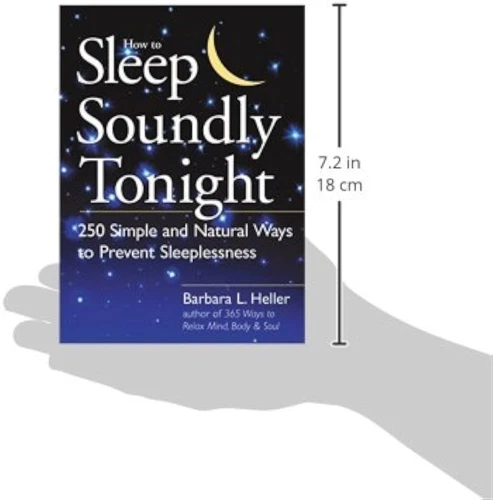
When it comes to improving sleep, incorporating mind-body techniques can be incredibly beneficial. These techniques focus on calming the mind and relaxing the body, promoting a state of deep relaxation that is conducive to better sleep. Relaxation exercises, such as progressive muscle relaxation and deep breathing techniques, can help reduce muscle tension and lower overall anxiety levels. Meditation and mindfulness practices, such as guided imagery and body scan meditation, can assist in quieting the mind and promoting a sense of inner peace. These techniques encourage a shift in focus away from racing thoughts and worries, allowing for a more tranquil and restful state. By integrating mind-body techniques into your bedtime routine, you can create a peaceful and soothing environment that promotes deep sleep. You may also consider exploring other alternative therapies, such as aromatherapy, acupuncture, and massage, which can further enhance relaxation and improve sleep quality.
Relaxation Exercises and Breathing Techniques
Relaxation exercises and breathing techniques are valuable tools for promoting relaxation and preparing the body for sleep. By engaging in these practices, individuals can calm their minds, reduce stress, and create an optimal environment for restful sleep. Here are some effective relaxation exercises and breathing techniques to try:
1. Progressive Muscle Relaxation: This technique involves sequentially tensing and releasing different muscle groups to promote relaxation throughout the body. Start by tensing the muscles in your toes and gradually work your way up to your head, focusing on one muscle group at a time. Hold the tension for a few seconds, then release and feel the tension melting away.
2. Deep Breathing: Deep breathing exercises can help calm the mind and relax the body. Find a comfortable position, close your eyes, and take slow, deep breaths in through your nose, filling your lungs completely. Hold the breath for a few seconds, then exhale slowly through your mouth. Repeat this cycle several times, focusing on the sensation of your breath to promote relaxation.
3. Guided Imagery: Guided imagery involves visualizing peaceful and calming scenes to relax the mind and promote sleep. Close your eyes and imagine yourself in a serene location, such as a beach or a forest. Engage your senses by imagining the sights, sounds, and smells of this tranquil environment, allowing yourself to fully immerse in the experience.
4. Mindful Meditation: Mindful meditation involves bringing your attention to the present moment without judgment. Find a quiet space, sit comfortably, and focus on your breath. Notice the sensation of each inhale and exhale, as well as any thoughts or sensations that arise. Instead of getting caught up in these thoughts, simply observe them and let them pass.
These relaxation exercises and breathing techniques can be practiced before bedtime to help unwind the body and mind, preparing you for a restful night’s sleep. Experiment with different techniques and find what works best for you. Remember, consistency is key, so make these practices a regular part of your bedtime routine.
Meditation and Mindfulness Practices
Meditation and mindfulness practices have gained immense popularity in recent years as effective techniques for promoting relaxation and improving sleep. These practices involve training the mind to focus on the present moment, cultivate awareness, and foster a non-judgmental attitude towards thoughts and experiences. By incorporating meditation and mindfulness into your daily routine, you can create a calm and peaceful state of mind, which can significantly contribute to better sleep. One popular meditation technique is mindfulness meditation, which involves sitting in a comfortable position, focusing on the breath, and observing any thoughts or sensations that arise without judgment. This practice helps calm the mind, reduce stress, and promote a sense of overall well-being. Another technique is guided imagery meditation, where you visualize calming and peaceful scenes, such as a beach or a forest, to relax the mind and induce sleep. Additionally, body scan meditation involves systematically bringing awareness to different parts of the body, releasing tension, and promoting physical and mental relaxation. Practicing meditation and mindfulness regularly can have a profound impact on sleep quality and overall sleep patterns. It can help reduce anxiety, quiet racing thoughts, and create a sense of inner stillness that prepares the mind and body for a restful night’s sleep. So, embrace the power of meditation and mindfulness to enhance your sleep and wake up feeling refreshed and rejuvenated.
Alternative Therapies for Insomnia
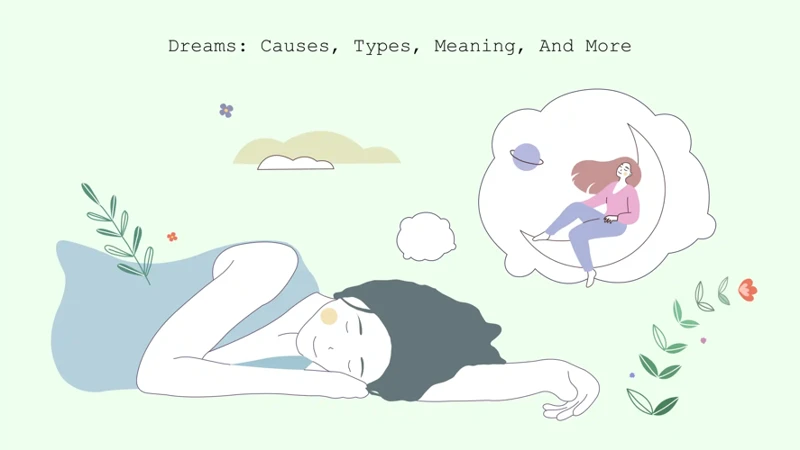
When it comes to treating insomnia, alternative therapies can offer a natural and holistic approach. Alternative therapies for insomnia encompass a range of practices that target both the mind and body to promote relaxation and improve sleep quality. Aromatherapy and essential oils have gained popularity as a soothing and calming aid for sleep. The use of specific scents, such as lavender or chamomile, can help create a tranquil atmosphere conducive to sleep. Another alternative therapy option is acupuncture and acupressure, which involve the application of pressure on specific points of the body to promote relaxation and restore balance. Massage and bodywork techniques, such as Swedish massage or shiatsu, can also be beneficial in relieving tension and promoting better sleep. These alternative therapies provide individuals with natural and non-invasive options to address insomnia and improve sleep quality.
Aromatherapy and Essential Oils
Aromatherapy and essential oils have long been used as natural remedies for promoting relaxation and improving sleep. These oils are extracted from plant sources and are known for their therapeutic properties. When used in aromatherapy, essential oils can have a calming and soothing effect on the mind and body, helping to induce sleep. Some popular essential oils for insomnia include lavender, chamomile, bergamot, and ylang-ylang. These oils can be used in various ways, such as diffusing them in an oil diffuser, adding a few drops to a warm bath, or applying them topically using a carrier oil. The scent of these essential oils can help reduce anxiety, relax the mind, and create a peaceful environment conducive to sleep. It’s important to note that essential oils should be used with caution and diluted properly before applying them to the skin. Pregnant women, children, and individuals with certain medical conditions should consult with a healthcare professional before using essential oils. Incorporating aromatherapy and essential oils into your bedtime routine can be a delightful and effective way to improve sleep quality and experience a more restful night.
Acupuncture and Acupressure
Acupuncture and acupressure are alternative therapies that have been utilized for centuries to promote better sleep and overall wellness. Acupuncture involves the insertion of thin needles into specific points along the body’s meridians, while acupressure involves applying pressure to these same points. Both techniques are based on the principles of Traditional Chinese Medicine, which views the body as a network of interconnected energy pathways.
Acupuncture works by stimulating these specific points, which are believed to correspond to different organs and functions in the body. This stimulation can help regulate the body’s energy flow, promote relaxation, and alleviate insomnia symptoms. Some studies have shown that acupuncture can improve sleep duration and quality, as well as reduce the time it takes to fall asleep.
Acupressure, on the other hand, involves using fingers, thumbs, or specialized tools to apply pressure to the acupuncture points. This pressure helps release tension, stimulate circulation, and promote relaxation, ultimately aiding in better sleep. Acupressure can be self-administered or performed by a trained practitioner.
Both acupuncture and acupressure are generally considered safe when performed by trained professionals. However, it’s important to consult with a qualified practitioner before undergoing any treatment. They will assess your specific condition and create a personalized treatment plan. It’s worth noting that while these therapies can be beneficial for some individuals, they may not be effective for everyone.
Acupuncture and acupressure are alternative therapies that can be used to address insomnia. These techniques are thought to promote relaxation, regulate energy flow, and improve sleep quality. If you’re considering trying acupuncture or acupressure, seek guidance from a qualified practitioner who can provide appropriate guidance and ensure your safety and well-being.
Massage and Bodywork
Massage and bodywork are alternative therapies that can be beneficial for improving sleep quality and managing insomnia. These techniques involve the manipulation of soft tissues in the body to promote relaxation, relieve muscle tension, and reduce stress.
One popular form of bodywork is Swedish massage, which utilizes long, flowing strokes, kneading, and circular movements to release tension and promote a sense of deep relaxation. Deep tissue massage, on the other hand, focuses on targeting deeper layers of muscle and connective tissue to help alleviate chronic pain and stiffness.
Another effective technique is aromatherapy massage, which combines the benefits of massage with the use of essential oils. Lavender oil, in particular, is known for its calming properties and can help induce a state of relaxation conducive to sleep.
For those who prefer a non-invasive approach, reflexology is a type of bodywork that involves applying pressure to specific points on the feet, hands, or ears, which are believed to correspond to different organs and systems in the body. This can help restore balance and promote relaxation, leading to better sleep.
It is important to note that massage and bodywork should be performed by trained and licensed professionals to ensure safety and effectiveness. Prior to undergoing any treatment, it is advisable to consult with a healthcare provider or a qualified massage therapist to determine the most appropriate approach for your specific needs.
Adding regular massage and bodywork sessions to your routine can not only help promote relaxation and reduce stress but also contribute to a more restful sleep. So why not treat yourself to the rejuvenating benefits of massage and experience the positive impact it can have on your sleep quality.
Technology and Gadgets to Aid Sleep

In the quest for better sleep, technology and gadgets can come to the rescue. There is a wide range of innovative tools and devices designed specifically to aid in achieving a restful night’s sleep. Sleep trackers and apps have gained popularity, allowing individuals to monitor their sleep patterns and gain insights into their sleep quality. These tools can help identify potential disruptions and provide suggestions for improvement. Light therapy devices are another helpful option, especially for those who experience difficulty falling asleep or regulating their sleep-wake cycles. These devices simulate natural light and can help regulate the body’s internal clock. White noise machines, on the other hand, can create a soothing sleep environment by masking background noises and promoting relaxation. Whether it’s tracking sleep, using light therapy, or incorporating white noise, technology and gadgets have become valuable allies in the quest for better sleep.
Sleep Trackers and Apps
Sleep trackers and apps have become popular tools for individuals seeking to improve their sleep quality. These innovative technologies utilize various methods to monitor and analyze sleep patterns, providing valuable insights and data to help users understand their sleep habits better. Sleep trackers are typically wearable devices, such as smartwatches or fitness bands, that track parameters like movement, heart rate, and even sleep stages. They provide detailed metrics, such as total sleep time, sleep interruptions, and sleep efficiency, allowing users to assess the overall quality of their sleep. Additionally, sleep apps can be installed on smartphones or tablets, utilizing the device’s built-in sensors or microphone to track sleep patterns. These apps often provide features like sleep logs, sleep diary, and even the ability to set sleep goals and reminders. Some sleep apps even incorporate relaxing sounds or guided meditation practices to help users wind down before bed. Sleep trackers and apps can be valuable tools for identifying sleep patterns, tracking progress, and making necessary adjustments to improve sleep quality. However, it’s important to note that these technologies should be used as aids and not as a substitute for professional medical advice or treatment for chronic sleep issues.
Light Therapy Devices
Light therapy devices have gained popularity as a natural remedy for insomnia, particularly for individuals who experience difficulty falling asleep or waking up in the morning. These devices emit bright light that mimics natural sunlight, which can help regulate the body’s internal clock and improve sleep-wake cycles. Light therapy devices are often used to treat seasonal affective disorder (SAD) and have been found to be effective in addressing sleep disorders as well. They work by exposing individuals to bright light for a specific duration and at specific times of the day, usually in the morning. This exposure to bright light helps suppress the production of melatonin, a hormone that promotes sleepiness, and signals the body to be more alert and awake. Light therapy devices come in various forms, such as light boxes, lamps, and dawn simulators. Light boxes are typically placed on a table or desk and emit intense light that should be directed towards the eyes, without staring directly into the light. Dawn simulators, on the other hand, gradually increase the intensity of light, simulating a natural sunrise, which can be beneficial for individuals who struggle with waking up early in the morning. Light therapy devices are generally safe to use, but it’s important to follow the instructions provided by the manufacturer and consult with a healthcare professional if you have any underlying medical conditions or concerns.
White Noise Machines
White noise machines are devices that produce a steady background sound, often resembling static or the soft hum of a fan. These machines are designed to mask or drown out other sounds in the environment, helping to create a more soothing and sleep-friendly atmosphere. One of the main benefits of white noise machines is their ability to promote relaxation and improve sleep quality by reducing sensitivity to other noises that may disrupt sleep. The constant, gentle sound they emit can help to block out sudden noises such as traffic, snoring, or barking dogs, allowing you to fall asleep faster and stay asleep longer. White noise machines are particularly helpful for individuals who live in noisy environments or those who are easily disturbed by external sounds. They can also be beneficial for people who struggle with tinnitus, as the constant white noise can help to mask the ringing or buzzing sounds. Some white noise machines also offer additional features, such as adjustable volume levels, timer settings, and a variety of soothing sounds to choose from, including nature sounds or relaxing melodies. Incorporating a white noise machine into your sleep routine can create a consistent and calming audio backdrop that enhances relaxation and promotes better sleep.
Seeking Professional Help for Chronic Insomnia
When chronic insomnia persists despite efforts to address it through natural remedies, seeking professional help becomes essential. Consulting with a healthcare professional who specializes in sleep disorders can provide valuable insights and guidance. The first step in seeking professional help for chronic insomnia is to schedule an appointment with a healthcare provider, such as a primary care physician or a sleep specialist. During the appointment, it is important to provide a detailed account of your sleep difficulties, including your sleep patterns, habits, and any contributing factors or symptoms you may have noticed. The healthcare provider may conduct a thorough evaluation, which may include asking questions about medical history, conducting physical examinations, or even ordering additional tests, such as sleep studies, to assess your sleep patterns more accurately. Based on the evaluation, the healthcare provider may recommend various treatment options tailored to your specific needs. These options may include cognitive-behavioral therapy for insomnia (CBTI), prescription medications, or a combination of both. CBTI is a widely recognized and effective treatment approach for insomnia that focuses on identifying and modifying negative thought patterns and behaviors that may be contributing to sleep difficulties. Medications, if prescribed, are typically used on a short-term basis to help restore regular sleep patterns, and they should be used under the guidance of a healthcare professional. It is important to follow the recommended treatment plan and provide feedback during follow-up visits to evaluate the effectiveness of the chosen treatment approach. Seeking professional help for chronic insomnia can significantly improve sleep quality and overall well-being, offering a path towards restful nights and better sleep.
Conclusion
In conclusion, achieving restful and quality sleep is essential for overall health and well-being. Insomnia can significantly affect our daily lives and contribute to various health issues. However, by understanding the causes of insomnia and implementing natural remedies, we can improve our sleep patterns and enjoy better rest. Healthy lifestyle habits, such as maintaining a consistent sleep schedule, creating a sleep-friendly environment, managing stress and anxiety, and limiting stimulants, play a vital role in promoting sound sleep. Additionally, incorporating a balanced diet and nutrition, engaging in regular exercise and physical activity, practicing mind-body techniques, and exploring alternative therapies can further enhance our sleep quality. Technology and gadgets can also aid us in tracking and improving our sleep patterns. While natural remedies can be effective for many individuals, it is important to seek professional help for chronic insomnia. By integrating these strategies into our daily lives, we can overcome insomnia and experience the benefits of rejuvenating and restorative sleep. Good night and sweet dreams!
Frequently Asked Questions
What are the common symptoms of insomnia?
Common symptoms of insomnia include difficulty falling asleep, waking up frequently during the night, waking up too early in the morning, feeling tired upon waking, having daytime fatigue or sleepiness, experiencing irritability or mood disturbances, and having difficulty focusing or concentrating.
How long does insomnia typically last?
The duration of insomnia can vary. Acute insomnia is generally short-term and lasts for a few days or weeks. Chronic insomnia, on the other hand, persists for at least three nights a week for three months or more.
What are the primary causes of insomnia?
Insomnia can be caused by a variety of factors, including stress, anxiety, depression, disrupted sleep schedule, poor sleep hygiene, underlying medical conditions, certain medications, caffeine intake, and environmental factors such as noise or uncomfortable sleep environment.
Can insomnia have an impact on mental health?
Yes, insomnia and mental health often go hand in hand. Insomnia can contribute to or worsen conditions such as anxiety disorders, depression, and stress. Sleep deprivation affects mood, cognitive function, and emotional well-being.
What is the relationship between insomnia and stress?
Insomnia and stress are closely linked. Stress can lead to difficulty falling asleep or staying asleep, and in turn, lack of sleep can increase stress levels. Exploring techniques to manage stress can be beneficial in improving sleep quality.
How does diet and nutrition affect insomnia?
Certain foods and beverages can either promote or hinder sleep. For example, consuming caffeine or heavy meals close to bedtime can interfere with sleep, while foods rich in tryptophan, magnesium, and calcium can support better sleep. Maintaining a balanced and healthy diet can positively impact sleep.
What role does exercise play in managing insomnia?
Regular exercise has been shown to improve sleep quality and duration. Engaging in physical activity can help reduce stress, anxiety, and restlessness, making it easier to fall asleep and stay asleep. However, it’s important to time exercise appropriately to avoid overstimulation close to bedtime.
Are there any natural supplements that can aid in sleep?
There are several natural supplements that can help promote better sleep, such as melatonin, valerian root, chamomile, lavender, and magnesium. However, it is essential to consult with a healthcare professional before starting any supplements to ensure they are safe and appropriate for your individual needs.
Can relaxation techniques and mindfulness practices improve sleep?
Yes, relaxation exercises, deep breathing techniques, meditation, and mindfulness practices can help calm the mind, reduce stress, and promote a state of relaxation conducive to sleep. Integrating these practices into a bedtime routine can improve sleep quality.
When should I consider seeking professional help for chronic insomnia?
If chronic insomnia persists despite implementing various natural remedies and lifestyle changes, it may be necessary to seek professional help. A healthcare provider or sleep specialist can assess your situation, provide a diagnosis, and recommend appropriate treatment options.

